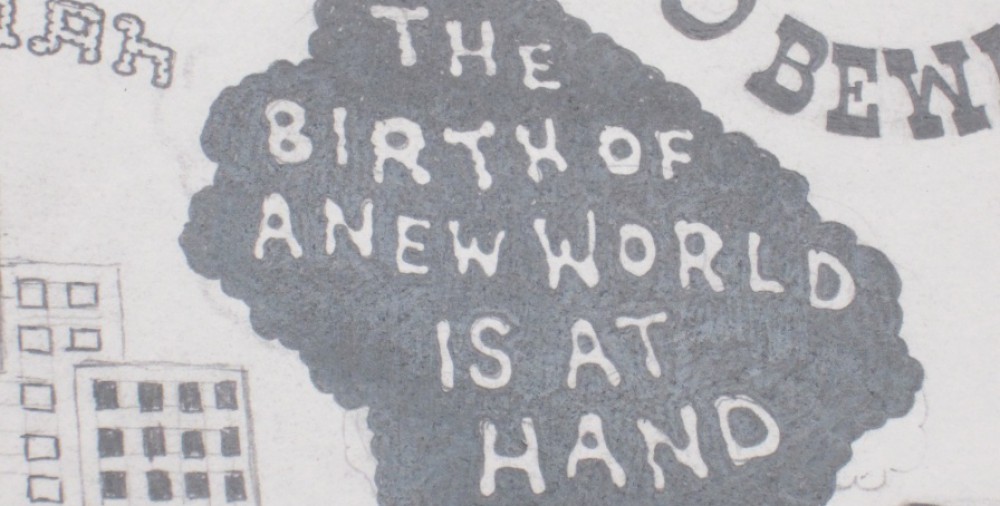In E.M Forster’s “The Machine Stops” introduces a utopian type society. I did not see it as your typical utopian society though. With a utopian society you image everyone happy and life is very simple and all is well. In this short story things seem a lot more depressing. I imagine the opening scene as something out of a popular video game series called “Fallout”. The game is set in a post-apocalyptic society where people are trapped in “vaults” and can never step into the outside world due to radiation. When the main character in the game steps out onto the earth for the 1st time, everything is like a desert with not a lot of plant life to be seen and a lot of destroyed buildings and towns. The color scheme is very bland and not a lot of vibrant colors. That’s how I imagine this world to be like. Now back to the depressing vibe I get from the imagery, when the protagonist Vashti hears the doorbell ring, she says this in response “I suppose I must see who it is” (Forster, 1). I just imagine a letdown person slowly move their chair over the door and kind of emotionlessly answer it. To me this does not seem like a utopian society.
Now throughout the story, this thing named “the Machine” is constantly being referred to. Now at 1st I thought that the Machine simply referred to Vashti’s house in which everything was mechanized. I soon realized that the Machine actually referred to the whole mechanical system that pretty much ran their entire society. There are also a lot of references that they see the machine as a type of God. The author specifically capitalizes the M in Machine. To me that signify that the machine is almost a person and has a name and not just an object. Vashti gets into an argument with her son Kuno in the story and Kuno says “You are beginning to worship the Machine” (Forster, 11). Vashti then responds with this “I worship nothing! I am most advanced. I don’t think you irreligious, for there is no such thing as religion left. All the fear and the superstition that existed once have been destroyed by the Machine” (Forster, 11). It almost seems like that this society has gotten rid of religion completely and viewed it as an almost taboo subject where everyone doesn’t have a God. However, Kuno believes that his mother is worshipping the machine as a God. I kind of agree with him. Especially when Forster writes “O Machine! She murmured and caressed her Book and was comforted” (Forster, 7). That’s almost the same thing to me as in our world when someone is distressed they yell out “Oh God”. The author not only identifies the Machine with a capitol but the Book as well which I’m assuming is either a manual or a way for the Machine to talk to people. I was not too clear on that.



